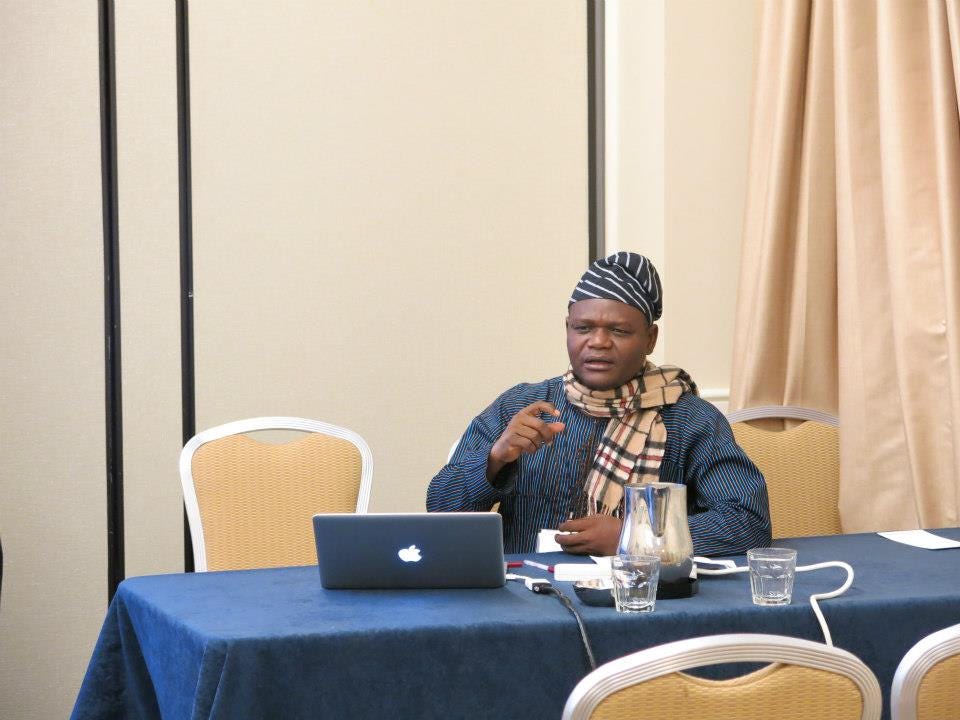The ANA Poetry Prize, administered by the Association of Nigerian Authors, is a respected and long-standing literary award in Nigeria that was established in 1980. It recognises and promotes excellence in Nigerian poetry, aiming to honour works that not only showcase the craft of poetry but also engage with contemporary social and political realities. This year, the Association opened submissions for all 2025 ANA Literary Prizes, inviting Nigerian writers, both at home and abroad, to submit published works released between 2024 and 2025.
Categories included poetry, fiction, drama, children’s literature, non-fiction, and literary criticism, with cash rewards ranging from one hundred to two hundred thousand naira. Each entry required a ten-thousand-naira fee, six copies of the book, proof of citizenship, and a cover letter, all to be mailed to the ANA secretariat in Abuja.
READ ALSO: Dapo Olorunyomi, ACJOAU’s Grand Patron, Speaks at Faculty of Arts Alumni Lecture
The university celebrated the announcement in an X post (formerly known as Twitter), describing the win as a proud moment for Great Ife and a reflection of the creative strength of its English Department. Professor Gbemisola Adeoti received the award during the forty-fourth ANA International Convention, where he was presented with a plaque and certificate.
Who is Professor Adeoti?
Professor Gbemisola Adeoti is widely regarded as one of the most accomplished voices in contemporary Nigerian literature. A poet, playwright, and scholar, he lectures in the Department of English at Obafemi Awolowo University, where he has also served as Director of the Institute of Cultural Studies and has edited books like One Muse, Many Masks (Reflections on Ahmed Yerima’s Recent Drama).
He first gained national attention with his debut collection, Naked Soles, a work known for its honest engagement with the daily realities of ordinary Nigerians. His academic writings explore African literature and performance, often drawing on figures such as Wole Soyinka and Ngugi wa Thiong’o.
Speaking with Professor Gbemisola Adeoti, he expressed his joy over the award. He said, ‘I found the award quite inspiring, and I use poetry to reflect my personal experiences and convey my views and understanding about society in all its ramifications—in politics, religion, economics, and culture. I also use my poetry to inspire the younger ones and give hope to people when there is no hope, because for me, no condition is permanent, whether it is a condition of despair or joy and peace.’
He stated that when you write and find merit in it, it is always a source of joy. ‘I was not writing to win an award; rather, I was writing to represent my world and give posterity something to reflect upon. When we teach literature, we teach about our contemporaries. When people are talking about Wole Soyinka and Shakespeare, why not about me? And that is what motivated me to write a kind of work that has merit in it.’
He expressed his elation at winning the award, recounting that his collection Naked Soles entered the competition in 2006, where a senior colleague’s work emerged first. He noted that if the judges see and select his own work and it emerges in the top three, then it is something of substance. He advised students to be perseverant and continue writing. Discussing AI, he noted its usefulness; however, he cautioned that students should not depend solely on it. He encouraged those with a passion for writing to be good readers and keep writing, as, in the long run, it will pay off, and there are lots of avenues to show their work.
Professor Adeoti stated, ‘I use Facebook and I ask people for criticism in which has helped me develop.’ ‘ Join an organisation of writers, use the internet well to develop yourself, share your words and comments, read to yourself, attend public readings, meet other writers and, far more importantly, read. People are not ready to read and write,’ he stated. He concluded by stating that one cannot be a better writer if one does not write.

